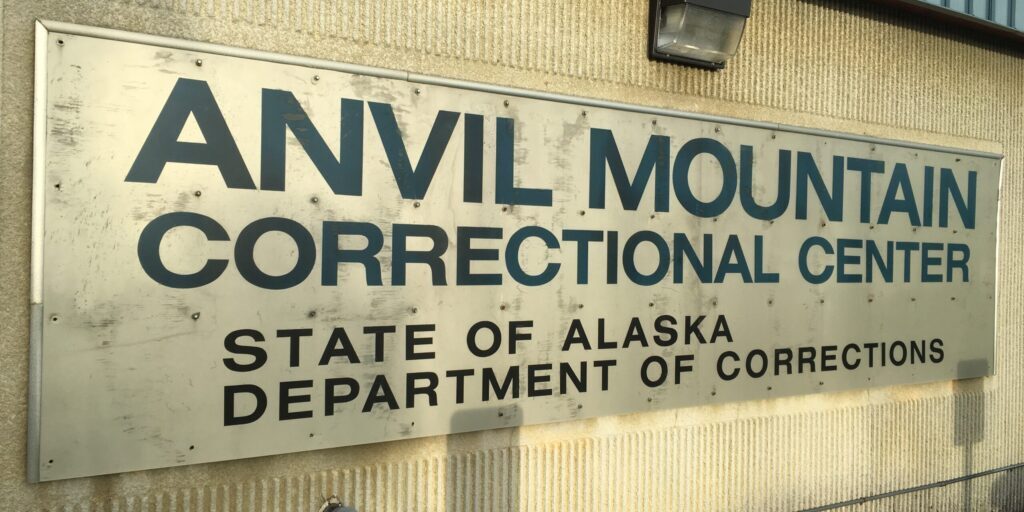The Alaska Department of Corrections (DOC) currently has no plans for widespread testing in facilities that have no confirmed COVID-19 cases. That includes Anvil Mountain Correctional Center (AMCC) in Nome, which has a general capacity of 126 beds.
DOC spokesperson Sarah Gallagher wrote in an e-mail to KNOM that the department is not doing “random testing” on potentially asymptomatic individuals, based on CDC guidelines. Yet the most recent cases of COVID-19 in Western Alaska have all been asymptomatic people detected through voluntary or routine testing.
Also, eleven staff members at Juneau’s Lemon Creek Correctional Center have tested positive for the virus, but those are being considered due to community spread rather than an outbreak at the facility. Two incarcerated people at separate correctional facilities on the road system have also tested positive for COVID-19. The DOC keeps a public record of how many incarcerated individuals are tested here.
Sergeant Randy McLellan, President of the Alaska Correctional Officers Association, is wary of the department’s policy.
“I can’t imagine who is more of a longterm care facility than a correctional facility, so widespread testing needs to take place.”
McLellan points out that the CDC does recommend widespread testing in long-term care facilities as states move to re-open.
DOC staff are considered first responders by the state and as such are allowed to get tested whenever they want, regardless of symptoms. There is free, rapid, testing available in Nome at the regional hospital and also for travelers returning from Anchorage at the Nome airport. But all of those testing options are voluntary.
Anvil Mountain Correctional Center (AMCC) in Nome serves the Nome and Kotzebue regions. Both regions saw new confirmed cases of COVID-19 within the last 14 days. Many of the correctional officers at AMCC work one week on and one week off—as essential workers, so they are not being required to get tested or even quarantined locally.
DOC has no plans for testing new remands or generally, the incarcerated population either. However, they have offered widespread testing for inmates in facilities with confirmed COVID-19 cases.
That’s also a concern for Sergeant McLellan. He points to the case in the Anchorage facility where the person was incarcerated for years and most likely got the virus from within the facility.
“There’s no such thing in our correctional facilities as social distancing. It’s a lot of people crammed into a small space. There’s nothing you can do about that. That’s just the nature of incarceration and the nature of our correctional facilities.”
DOC policy does not require testing for incarcerated people on the day of their release, unless they are showing symptoms.
For now, the department is continuing to follow procedures that were established in February for screening correctional officers and new inmates. That includes a series of questions and daily temperature tests for staff and visitors.
In late April, AMCC Superintendent Sandy Martinson told KNOM that new inmates are supposed to be quarantined inside their facility.
“When new remands are received and they are not staying with us (at AMCC), we do keep them separate from our inmate population that has been here for a while.”
So far, that strategy has been working for AMCC. The Nome facility has not seen any cases of COVID-19 among its staff or incarcerated population. As of this report, the state has had only two incarcerated people test positive for COVID-19; one at Goose Creek Correctional Facility and another at the Anchorage Correctional Complex.
In other parts of the country, prisons and correctional facilities have become coronavirus hotspots.
With the re-opening of Alaska, DOC Spokesperson Sarah Gallagher said in an e-mail that the department is, “continuing with the temporary policies… in place.” That includes a ban on in-person visitation, classes, and many leisure activities for incarcerated people.
Image at top: Anvil Mountain Correctional Center in Nome. Photo from Margaret DeMaioribus, KNOM file.




